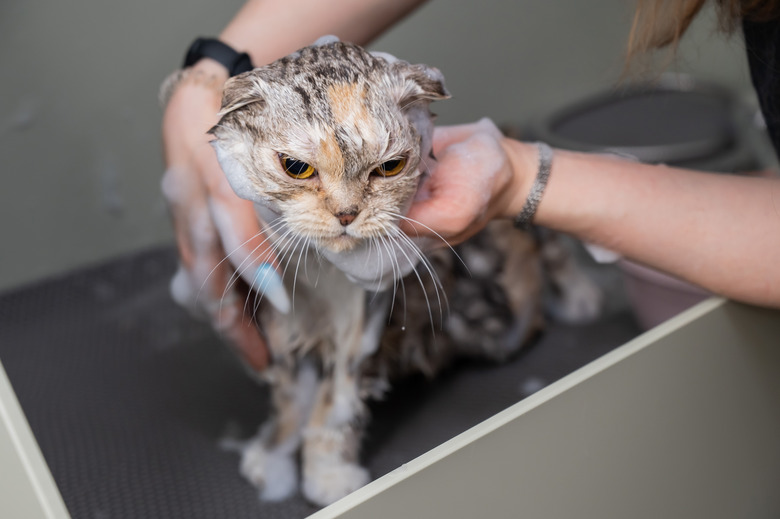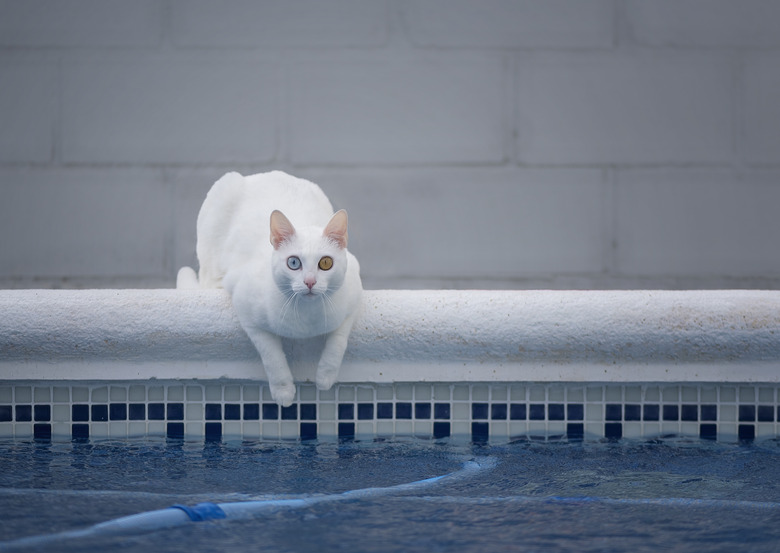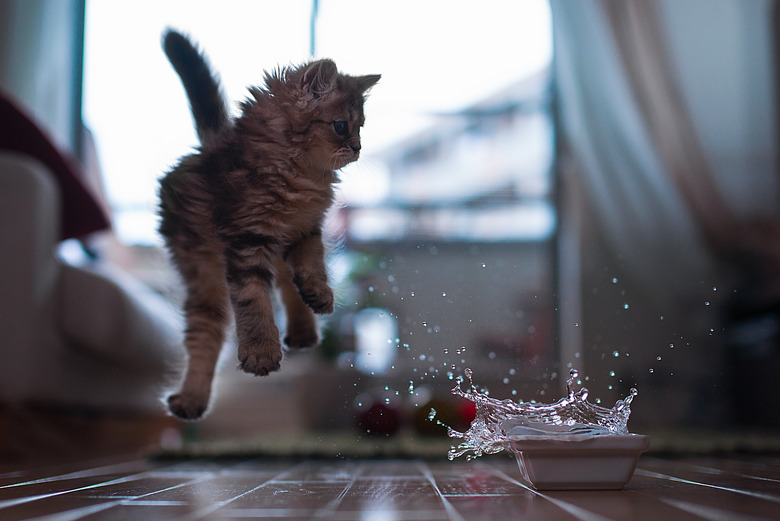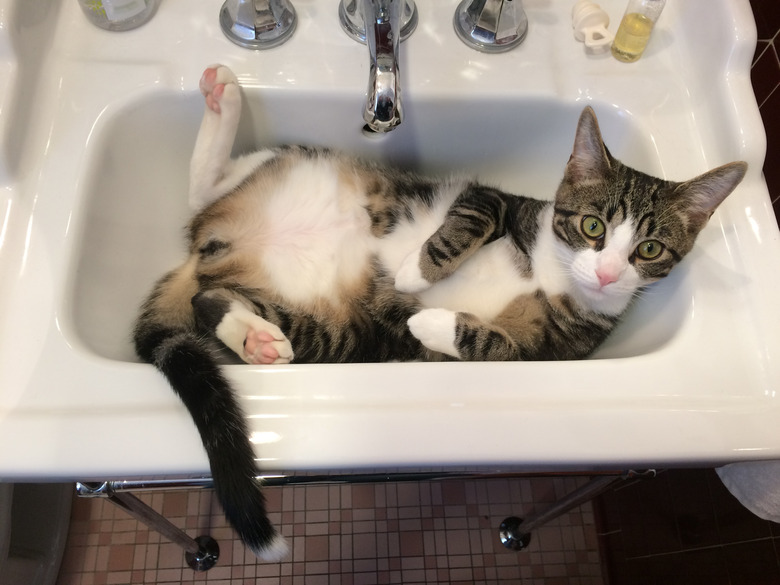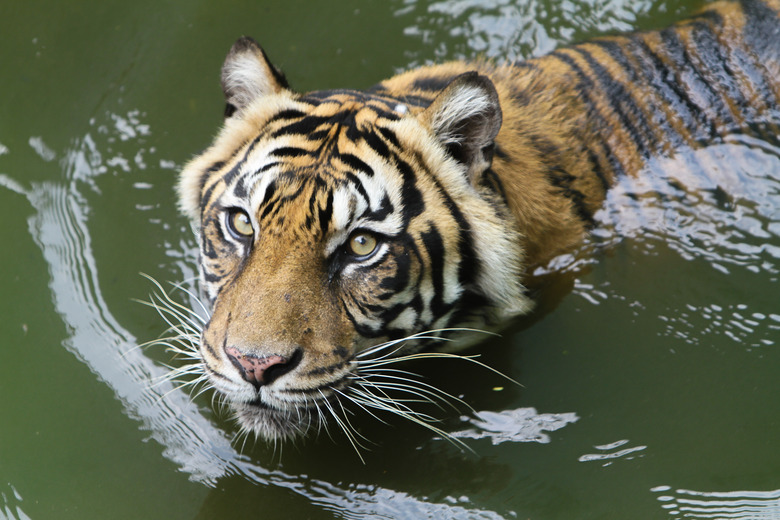Do All Cats Really Hate Water?
Everyone knows that cats hate water...right? It's a firmly-held belief that domestic cats don't appreciate getting wet, and for the most part that's true, but hate isn't the most accurate way to describe how our felines feel about water. In most cases, cats don't have a taste for swimming because they're just not engineered to need to–between their thick coats and their desert-dwelling ancestors, soaking in pools of water just isn't something cats need to do. That said, some cats love to swim, and many cats love to play with water or watch moving streams as a way to enrich their lives!
Why do cats hate water?
Why do cats hate water?
Cats don't necessarily hate water, many of them just don't really find themselves needing to explore it much. Why? Well, there are a couple of likely reasons, the first of which is attributed to their fancy coats. Cats are ardent bathers and generally don't require water from an outside source to keep themselves clean, thanks to their barbed tongues and frequent grooming schedules. Not only do they not need water to clean themselves, their fur isn't adapted to support a full soak. While an individual strand of cat hair is much thinner than a dog's or a person's, a cat's coat is much more thick and dense than the coats of those mentioned. This can cause cats to have wet fur long after they've emerged from whatever body of water they've waded in, which could obviously be very uncomfortable, especially if the temperature is low enough to bring their body temperature down, or is simply uncomfortable to feel.
Another theory that might explain why many cats dislike water goes back to their origins. All domestic cats originate from ancient wildcats who come from Northern Africa and the Middle East. The first round of domestication began during the Near East Neolithic period in the Fertile Crescent, and later, during the Classical period in Egypt. Being from dry climates, there was little need or opportunity for these ancient felines to swim, and it's quite possible that the affinity for it or the need to use it just wasn't passed down.
When do cats enjoy water?
When do cats enjoy water?
That said, like any preference, not every cat possesses a dislike of water as a hard rule, and their inclination for swimming will be up to each cat. In fact, some cat breeds are known for being excellent and even enthusiastic swimmers, including the Maine coon, the Bengal, and the Turkish Van, the first of which is actually a fairly hairy feline. Other cats love playing in water so long as they're not submerged in it, or held against their will for the dreaded bath.
Most cats actually enjoy the sound, feel, and taste of running water, which is why you might see yours lingering by the faucet from time to time. It's believed that this desire is one that's been inherited from their ancestors, who had to seek out fresh, running water sources to avoid bacteria that might build up in a stagnant body of water. The movement of water also piques their curiosity as well as a cat's sense to focus on prey, which is hard-wired to lead them to set their sights on anything that moves. For this reason, many pet parents like to keep a cat water fountain in the home as an enrichment activity for their feline friends.
Don’t big cats swim?
Don't big cats swim?
Yes! Large wild cats like tigers, lions, and leopards will indulge in a dip from time to time, but this is usually done for two reasons—body temperature regulation, and hunting. Because these types of big cats live in areas of the world that experience high temperatures almost year-round, a huge part of their lives is spent keeping their body temperatures within a healthy range. This is done by napping during the hottest hours of the day, resting in shaded areas, and cooling off in pools of water. Big cats may also chase prey into the water when necessary. Domestic cats in North America, particularly house cats, usually don't need help regulating their body temperature to this extent, which typically rests between 101.0 to 102.5°F.
The bottom line
The bottom line
Many cats don't appreciate being submerged in water because it just feels uncomfortable for them. Their thick, dense fur tends to stay wet long after they get out of a pool of water, and because they're designed to self-groom anyway, there's really just no need for them to subject themselves to a dunk. Some cats do enjoy swimming, however, including entire breeds of cats like the Maine Coon and the Bengal. If a cat has had a negative experience with water they are not likely to give it a second chance, so watch your cat's behavior around water sources—if they seem stressed out or scared, don't force them in.
